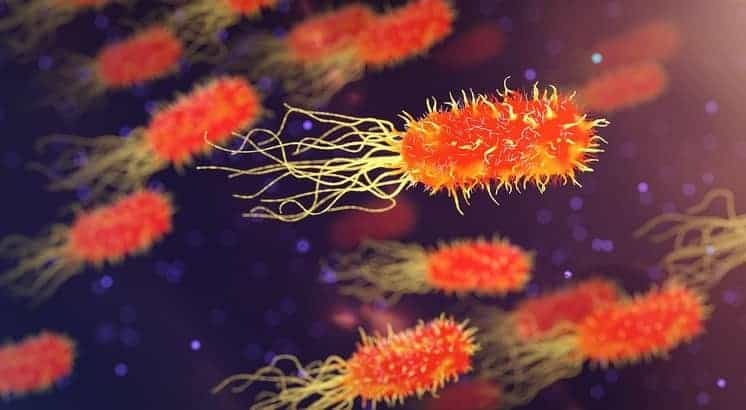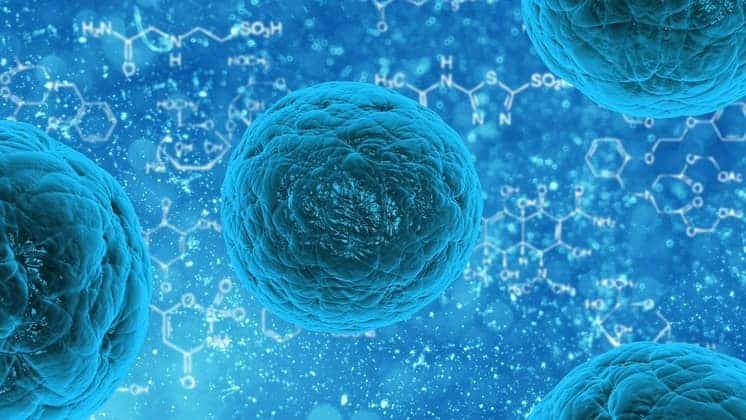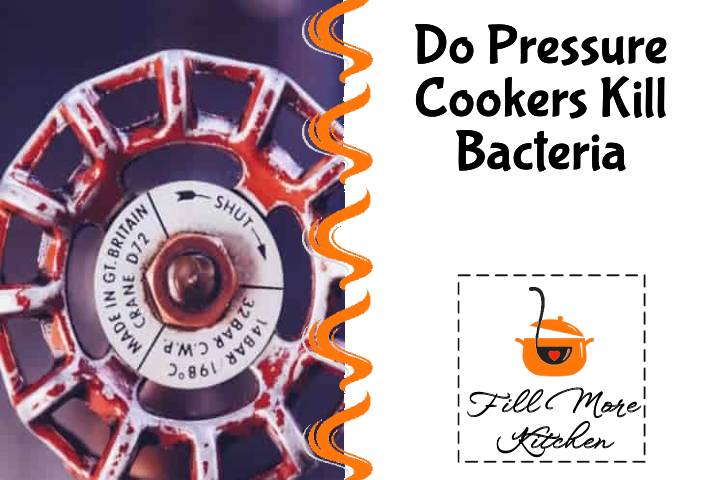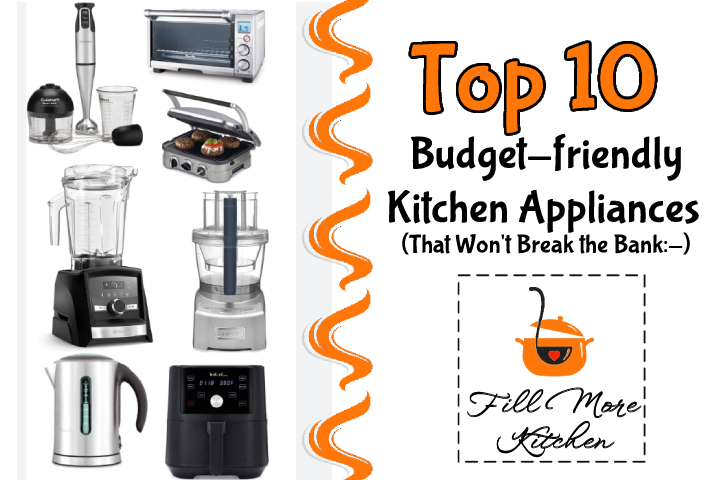Pressure cookers are renowned for their capacity to prepare a substantial meal in a shorter duration than other cooking techniques, while also retaining a significant proportion of the nutrients in the food. However, our attention today is not on nutrients or cooking times; instead, we are concentrating on bacteria.
The pressure cooker operates on a principle similar to the autoclave process, which is commonly used in laboratories to eliminate bacteria. This similarity prompted me to investigate further, and here’s what I discovered.
Is it true that pressure cookers can eliminate bacteria? Affirmative, they can. The pressure inside the cooker raises the boiling point of water to 250F/121C while cooking, which is sufficient to destroy most bacteria and viruses. This technique of using heat and pressure has been employed in the food industry for a considerable period to eradicate bacteria.
Most micro-organisms, including bacteria, can be killed by bringing the pressure cooker to full pressure. However, not all types of bacteria in our food can be eliminated this way. It is important to consider both time and temperature as additional factors for getting rid of certain types of bacteria.
Heat and pressure are two highly efficient techniques for eliminating bacteria, and the pressure cooker utilizes both of them.
Bacteria can be effectively eliminated by heat, which was traditionally achieved through the use of live fires for cooking before the advent of electricity.
Although cooking has become easier, the purpose of it remains the same – to eliminate bacteria that can be detrimental to our health. While we can easily comprehend how high temperatures and flames eradicate bacteria, the mechanism behind pressure may not be as apparent.
This Is How The Pressure Cooker Kills Bacteria Effectively

Fortunately, high pressure is highly efficient in sterilization. The same principle employed by pressure cookers is commonly utilized in hospitals to sterilize surgical equipment, laboratory instruments, and other items that need to be completely free of bacteria.
Both the pressure cooker and autoclave utilize steam to eliminate bacteria, germs, and other micro-organisms that may be impervious to boiling water and potent chemicals.
Similar to the autoclave, pressure cooker does not immediately eliminate all bacteria. Nevertheless, subjecting the cooker to pressure will eradicate a majority of the bacteria that cause foodborne illnesses.
However, the autoclave requires more extreme methods and a longer exposure time to “sterilize” the contents of the container, while in the pressure cooker, our goal is not to sterilize but rather eliminate harmful bacteria like Salmonella, Campylobacter, Listeria, and E.Coli.
There are several benefits of using a pressure cooker that are worth emphasizing.
- When it comes to eliminating bacteria, pressure cooking does not compromise the taste of food, unlike other cooking methods that may negatively affect the flavor and texture if a similarly sterile environment is created.
- By using a pressure cooker, the concentration of aflatoxin can be effectively reduced to safe levels, which is a fungal poison commonly found in rice, wheat, corn, and beans. Merely heating food to its boiling point does not yield similar outcomes.
- When using a pressure cooker, it is sufficient to add enough water to maintain steam throughout the cooking process, which helps retain the nutrients in our food by preventing them from dissolving in water.
- As per the previous bulletin, pressure cooking is a faster cooking method that can efficiently preserve nutrients.
- When it comes to reducing lectins, an anti-nutrient in grains, pressure cookers are highly efficient, making them one of the most effective methods for preparing beans and grains.
Can Pressure Cookers Sterilize Food?
Small pressure cookers should not be used to sterilize food. They can effectively reduce the number of bacteria, conserve nutrients, and more. It has been demonstrated that the pressure cooker can indeed sterilize syringes and bottles – these tests were conducted under strict supervision with enough equipment to verify the results.
While electric pressure cookers can sterilize food, it is recommended to use a pressure canner for sterilization purposes.
To eliminate bacteria from food, a pressure cooker needs to maintain a pressure of 15psi for approximately 30 minutes. Although it is not uncommon to cook with a pressure cooker for this duration, most models do not sustain the required pressure throughout the cooking process.
Manufacturers may advertise that their pressure cookers operate at 15psi, but this may only be true during a brief peak period. To effectively sterilize food, the pressure must remain constant at this level for the entire 30-minute cooking time.
Time and temperature are crucial factors in achieving sterilization in a pressure cooker. If the appliance cannot maintain 15psi for 30 minutes, one must cook the food for a longer duration to achieve the same outcome. However, it is uncommon for anyone to cook food in a pressure cooker for that extended period.
Can Pressure Cookers Kill Botulism?
Bacteria in our food have the ability to generate harmful toxins, such as the botulinum toxin, which can cause Botulism.
Botulism is associated with improperly canned food and can be deadly due to the paralysis it causes, which can lead to respiratory failure when it affects the muscles used for breathing. While the germ can survive in canned foods, it thrives in soil, and low-acid foods are most frequently linked to the toxin.
In order to avoid Botulism altogether, those who can food at home should use a pressure canner and adhere to the guidelines for home canning provided by the USDA.
However, when it comes to Botulism, how effective is the pressure cooker in dealing with it?
Botulism toxin and bacteria are distinct entities, with the former being generated by the latter.
Botulism can be eliminated by subjecting it to high temperatures of 250+ degrees Fahrenheit along with high pressure, but the spores produced to protect the toxin are highly resilient and can endure extreme conditions such as boiling water and freezing cold environments.
When the temperature exceeds 120 degrees Celsius, the spores that safeguard bacteria are eliminated, and pressure cookers can attain temperatures up to 121 degrees Celsius, depending on the food being prepared.
Pressure cookers can only reach a maximum temperature of 100 degrees Celsius when cooking with liquids, and even when cooking dry foods, they can only maintain maximum temperatures for brief periods.
Consequently, it is a challenge to eradicate botulism in a pressure cooker, but it can be accomplished at extremely high temperatures for around 30 minutes. In reality, the spores are the difficult ones to eliminate; the botulism toxin itself does not survive 10 minutes in boiling water.
Despite that, I still advise utilizing the pressure canner for this undertaking.
Do Pressure Cookers Kill Toxin and Poison?

Bacteria, toxins, and poisons are distinct entities. Unfortunately, it is impossible to eliminate toxins and poisons since they are not living organisms. Toxins and poisons can only deteriorate, which is unlikely to occur during cooking. Cooking food until all traces of toxins are eradicated would make it inedible.
Examining them separately reveals that bacteria can only be eliminated from our food by washing it thoroughly before cooking, which only eradicates the bacteria on the food’s surface.
Toxins are typically present within the food, with some of the most worrisome ones being:
- Mercury
- Added sugar
- Coumarin in cinnamon
- Mercury in fish
- BPA
- Trans fats
Regarding food poisoning, the pressure cooker is capable of preventing it by eliminating the bacteria.
Do Pressure Cookers Form Harmful Compounds Like Acrylamide?
Research has indicated that pressure cookers aid in getting rid of two dangerous substances, namely acrylamide and heterocyclic amines, which have been associated with the formation of cancer.
Acrylamide is a substance present in foods that are high in carbohydrates and have been subjected to elevated temperatures, such as potato chips or french fries.
Potatoes have asparagine, an amino acid that creates a harmful compound when exposed to specific carbohydrates at high temperatures. Fortunately, using a pressure cooker eliminates the presence of these substances.
Researchers carried out an experiment in which they cooked potatoes in a pressure cooker for 20 minutes to determine if acrylamide was formed, and found that the potatoes were significantly less likely to contain acrylamide compared to those prepared using alternative methods.
The reason why pressure cookers are effective in killing bacteria is that they create a very moist environment due to the presence of steam, which prevents the formation of compounds like acrylamide that are formed when cooking with dry heat.
Conclusion: Do Pressure Cookers Benefit our Health?
Although the majority of harmful bacteria can be eliminated by a pressure cooker once it reaches sufficient pressure, certain micro-organisms require prolonged exposure to high temperatures to be completely eradicated.
The pressure cooker is efficient in retaining nutrients as it uses minimal water, reducing nutrient depletion. The added pressure during cooking allows for faster cooking times and effective bacteria elimination by forcing heat to penetrate the food.
When compared to frying or boiling, the pressure cooker is a significantly healthier option.
You can also check this video about “Do Pressure Cookers Kill Bacteria?”
Check out our top 10 reviews!
Related posts
https://fillmorekitchen.com/this-is-how-you-keep-food-from-sticking-to-dehydrator-trays/
https://fillmorekitchen.com/is-it-safe-to-cook-with-plastic-wrap-in-the-oven/
https://fillmorekitchen.com/can-you-freeze-food-after-its-been-in-the-fridge/
https://fillmorekitchen.com/kitchen-appliance-durability-how-long-do-stand-mixers-last/
https://fillmorekitchen.com/can-an-oven-overheat-yes-so-heres-what-to-do/



